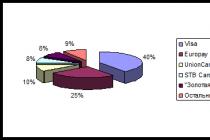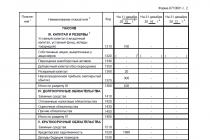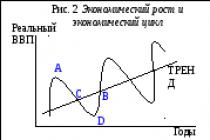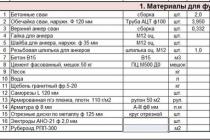Policy regarding the processing of personal data
1. Terms and accepted abbreviations
1. Personal data (PD) - any information relating to a directly or indirectly identified or identifiable natural person (PD subject).
2. Processing of personal data - any action (operation) or a set of actions (operations) performed using automation tools or without using such tools with personal data, including collection, recording, systematization, accumulation, storage, clarification (updating, changing), extraction, use, transfer (distribution, provision, access), depersonalization, blocking, deletion, destruction of personal data.
3. Automated processing of personal data - processing of personal data using computer technology.
4. Personal data information system (PDIS) - a set of personal data contained in databases and providing their processing information technologies and technical means.
5. Personal data made public by the subject of personal data - PD, access to which is provided to an unlimited number of persons by the subject of personal data or at his request.
6. Blocking of personal data - temporary suspension of the processing of personal data (except when processing is necessary to clarify personal data).
7. Destruction of personal data - actions, as a result of which it becomes impossible to restore the content of personal data in the information system of personal data and (or) as a result of which material carriers of personal data are destroyed.
8. A cookie is a piece of data that is automatically placed on your computer's hard drive each time you visit a website. Thus, a cookie is a unique browser identifier for a website. Cookies make it possible to store information on the server and help you navigate the web more easily, as well as allow you to analyze the site and evaluate the results. Most web browsers allow cookies, but you can change your settings to refuse cookies or track their path. At the same time, some resources may not work correctly if cookies are disabled in the browser.
9. Web marks. On certain web pages or emails, the Operator may use "web tagging" technology common on the Internet (also known as "tags" or "precise GIF technology"). Web tagging helps you analyze the performance of websites, for example by measuring the number of visitors to a site or the number of "clicks" made on key positions on a site page.
10. Operator - an organization that independently or jointly with other persons organizes and (or) carries out the processing of personal data, as well as determines the purposes of processing personal data, the composition of personal data to be processed, actions (operations) performed with personal data.
11. User - Internet user.
12. The site is a web resource https://lc-dv.ru, owned by the Company with limited liability"Legal Center"
2. General provisions
1. This Policy regarding the processing of personal data (hereinafter referred to as the Policy) is drawn up in accordance with paragraph 2 of Article 18.1 of the Federal Law "On Personal Data" No. 152-FZ of July 27, 2006, as well as other regulatory legal acts Russian Federation in the field of protection and processing of personal data and applies to all personal data that the Operator can receive from the User during his use of the Site on the Internet.
2. The operator ensures the protection of processed personal data from unauthorized access and disclosure, misuse or loss in accordance with the requirements of the Federal Law of July 27, 2006 No. 152-FZ "On Personal Data".
3. The Operator has the right to make changes to this Policy. When changes are made, the heading of the Policy indicates the date of the last revision of the revision. The new version of the Policy comes into force from the moment it is posted on the website, unless otherwise provided new edition Politicians.
3. Principles of personal data processing
1. The processing of personal data by the Operator is carried out on the basis of the following principles:
2. legality and fair basis;
3. limiting the processing of personal data to the achievement of specific, predetermined and legitimate purposes;
4. preventing the processing of personal data that is incompatible with the purposes of collecting personal data;
5. preventing the merging of databases containing personal data, the processing of which is carried out for purposes incompatible with each other;
6. processing only those personal data that meet the purposes of their processing;
7. compliance of the content and scope of the processed personal data with the stated purposes of processing;
8. preventing the processing of personal data that is excessive in relation to the stated purposes of their processing;
9. ensuring the accuracy, sufficiency and relevance of personal data in relation to the purposes of processing personal data;
10. destruction or depersonalization of personal data upon reaching the goals of their processing or in case of loss of the need to achieve these goals, if it is impossible for the Operator to eliminate the committed violations of personal data, unless otherwise provided federal law.
4. Processing of personal data
1. Obtaining PD.
1. All PD should be obtained from the PD subject himself. If the subject's PD can only be obtained from a third party, then the subject must be notified of this or consent must be obtained from him.
2. The operator must inform the PD subject about the purposes, alleged sources and methods of obtaining PD, the nature of the PD to be received, the list of actions with PD, the period during which the consent is valid and the procedure for its withdrawal, as well as the consequences of the refusal of the PD subject to give written consent to receive them.
3. Documents containing PD are created by receiving PD over the Internet from the PD subject while using the Site.
2. The operator processes PD if at least one of the following conditions exists:
1. The processing of personal data is carried out with the consent of the subject of personal data to the processing of his personal data;
2. The processing of personal data is necessary to achieve the goals provided for by an international treaty of the Russian Federation or the law, for the implementation and fulfillment of the functions, powers and obligations assigned by the legislation of the Russian Federation to the operator;
3. The processing of personal data is necessary for the administration of justice, the execution of a judicial act, an act of another body or official subject to execution in accordance with the legislation of the Russian Federation on enforcement proceedings;
4. The processing of personal data is necessary for the performance of an agreement to which the subject of personal data is a party or beneficiary or guarantor, as well as to conclude an agreement on the initiative of the subject of personal data or an agreement under which the subject of personal data will be the beneficiary or guarantor;
5. The processing of personal data is necessary to exercise the rights and legitimate interests of the operator or third parties, or to achieve socially significant goals, provided that the rights and freedoms of the subject of personal data are not violated;
6. Processing of personal data is carried out, access of an unlimited number of persons to which is provided by the subject of personal data or at his request (hereinafter - publicly available personal data);
7. Processing of personal data subject to publication or mandatory disclosure in accordance with federal law is carried out.
3. The Operator may process PD for the following purposes:
1. raising awareness of the PD subject about the products and services of the Operator;
2. conclusion of agreements with the subject of PD and their execution;
3. informing the PD subject about the news and offers of the Operator;
4. identification of the subject of PD on the Site;
5. ensuring compliance with laws and other regulatory legal acts in the field of personal data.
1. Individuals who are in civil law relations with the Operator;
2. Individuals who are Users of the Site;
5. PD processed by the Operator - data received from Users of the Site.
6. Processing of personal data is carried out:
1. - using automation tools;
2. - without the use of automation tools.
7. Storage of PD.
1. PD of subjects can be received, further processed and transferred for storage both on paper and in electronic form.
2. PD recorded on paper are stored in locked cabinets or in locked rooms with limited access rights.
3. PD of subjects processed using automation tools for different purposes is stored in different folders.
4. It is not allowed to store and place documents containing PD in open electronic catalogs(file sharing) in ISPD.
5. Storage of PD in a form that allows to identify the subject of PD is carried out no longer than required by the purposes of their processing, and they are subject to destruction upon achievement of the purposes of processing or in case of loss of the need to achieve them.
8. Destruction of PD.
1. Destruction of documents (carriers) containing PD is carried out by burning, crushing (grinding), chemical decomposition, transformation into a shapeless mass or powder. A shredder may be used to destroy paper documents.
2. PD on electronic media are destroyed by erasing or formatting the media.
3. The fact of the destruction of PD is documented by an act on the destruction of media.
9. Transfer of PD.
1. The operator transfers PD to third parties in the following cases:
- the subject has expressed his consent to such actions;
- the transfer is provided for by Russian or other applicable legislation within the framework of the procedure established by law.
2. List of persons to whom PD is transferred.
Third parties to whom PD is transferred:
The operator transfers the PD to Legal Center LLC (which is located at the address: Khabarovsk, 680020, Gamarnika St., 72, office 301) for the purposes specified in clause 4.3 of this policy. The operator entrusts the processing of PD to Legal Center LLC with the consent of the PD subject, unless otherwise provided by federal law, on the basis of an agreement concluded with these persons. Legal Center LLC carries out the processing of personal data on behalf of the Operator, they are obliged to comply with the principles and rules for the processing of personal data provided for by Federal Law-152.
5. Protection of personal data
1. According to requirements normative documents The operator has created a personal data protection system (PDPS), consisting of subsystems of legal, organizational and technical protection.
2. The subsystem of legal protection is a complex of legal, organizational, administrative and regulatory documents that ensure the creation, operation and improvement of the CPAP.
3. The subsystem of organizational protection includes the organization of the management structure of the SPD, the permit system, the protection of information when working with employees, partners and third parties.
4. The technical protection subsystem includes a set of technical, software, software and hardware tools that ensure the protection of PD.
5. The main PD protection measures used by the Operator are:
1. Appointment of a person responsible for the processing of PD, who organizes the processing of PD, training and instruction, internal control over compliance by the institution and its employees with the requirements for the protection of PD.
2. Determination of actual threats to the security of PD during their processing in ISPD and development of measures and measures to protect PD.
3. Development of a policy regarding the processing of personal data.
4. Establishment of rules for access to PD processed in ISPD, as well as ensuring registration and accounting of all actions performed with PD in ISPD.
5. Establishment of individual access passwords for employees in information system according to their job responsibilities.
6. The use of information security tools that have passed the conformity assessment procedure in the prescribed manner.
7. Certified antivirus software with regularly updated databases.
8. Compliance with the conditions that ensure the safety of PD and exclude unauthorized access to them.
9. Detection of facts of unauthorized access to personal data and taking action.
10. Recovery of PD modified or destroyed due to unauthorized access to them.
11. Training of the Operator's employees directly involved in the processing of personal data on the provisions of the legislation of the Russian Federation on personal data, including the requirements for the protection of personal data, documents defining the Operator's policy regarding the processing of personal data, local acts on the processing of personal data.
12. Implementation internal control and audit.
6. Basic rights of the subject of PD and obligations of the Operator
1. Basic rights of the subject of PD.
The subject has the right to access his personal data and the following information:
1. confirmation of the fact of PD processing by the Operator;
2. legal grounds and purposes of PD processing;
3. purposes and methods of PD processing used by the Operator;
4. name and location of the Operator, information about persons (excluding employees of the Operator) who have access to PD or to whom PD may be disclosed on the basis of an agreement with the Operator or on the basis of federal law;
5. terms of personal data processing, including the terms of their storage;
6. the procedure for the exercise by the PD subject of the rights provided for by this Federal Law;
7. name or surname, first name, patronymic and address of the person processing PD on behalf of the Operator, if the processing is or will be entrusted to such a person;
8. contacting the Operator and sending him requests;
9. appeal against the actions or inaction of the Operator.
10. The user of the Site may at any time revoke his consent to the processing of PD by sending an email to the email address: [email protected], or by sending a written notice to the address: 680020, Khabarovsk, st. Gamarnika, house 72, office 301
eleven. . Upon receipt of such a message, the processing of the User's PD will be terminated, and his PD will be deleted, except in cases where the processing can be continued in accordance with the law.
12. Obligations of the Operator.
The operator is obliged:
1. when collecting PD, provide information on the processing of PD;
2. in cases where the PD was not received from the subject of the PD, notify the subject;
3. if the subject refuses to provide PD, the consequences of such refusal are explained to the subject;
5. take the necessary legal, organizational and technical measures or ensure their adoption to protect PD from unauthorized or accidental access to them, destruction, modification, blocking, copying, provision, distribution of PD, as well as from other illegal actions in relation to PD;
6. respond to requests and appeals of PD subjects, their representatives and the authorized body for the protection of the rights of PD subjects.
7. Features of the processing and protection of data collected using the Internet
1. There are two main ways in which the Operator receives data using the Internet:
1. Provision of PD by PD subjects by filling out forms on the Site;
2. Automatically collected information.
The operator may collect and process information that is not PD:
3. information about the interests of Users on the Site based on the entered search queries users of the Site about services and goods sold and offered for sale in order to provide up-to-date information to Users when using the Site, as well as to summarize and analyze information about which sections of the Site, services, goods are most in demand among Users of the Site;
4. processing and storage of search queries of the Site Users in order to summarize and create statistics on the use of sections of the Site.
2. The Operator automatically receives certain types of information obtained in the course of Users' interaction with the Site, e-mail correspondence, etc. It's about about technologies and services such as cookies, Web tags, as well as applications and tools of the User.
3. At the same time, Web marks, cookies and other monitoring technologies do not make it possible to automatically receive PD. If the Site User, at his own discretion, provides his PD, for example, when filling out a feedback form, then only then will the processes of automatic collection of detailed information start for the convenience of using the Site and / or to improve interaction with Users.
8. Final provisions
1. This Policy is local normative act Operator.
2. This Policy is public. The general availability of this Policy is ensured by publication on the Operator's Website.
3. This Policy may be revised in any of the following cases:
1. when changing the legislation of the Russian Federation in the field of processing and protecting personal data;
2. in cases of receipt of instructions from competent government agencies to eliminate inconsistencies affecting the scope of the Policy
3. by decision of the Operator;
4. when changing the purposes and terms of PD processing;
5. when changing organizational structure, the structure of information and / or telecommunication systems (or the introduction of new ones);
6. when applying new technologies for processing and protecting PD (including transmission, storage);
7. if there is a need to change the process of processing PD related to the activities of the Operator.
4. In case of failure to comply with the provisions of this Policy, the Company and its employees are liable in accordance with the current legislation of the Russian Federation.
5. Control over the fulfillment of the requirements of this Policy is carried out by persons responsible for organizing the processing of Company Data, as well as for the security of personal data.
The tax authorities have different audits, we are interested in two - cameral and field. The purpose of audits is the same: to make sure that the company pays as much taxes as it should. And if he does not pay, demand the missing amount.
Camera check. The tax office conducts a desk audit without visiting the company. To check, the tax authorities study the declarations and ask for clarifications if any item raises questions.
For a desk audit, you do not need to obtain permission, the tax authority has the right to check the declarations of any company. But there is a limitation: the tax office can request clarifications only on a specific declaration. The company submits a declaration for the third quarter, which means that the questions are about transactions for the third quarter.
Scan of a tax request as part of a desk audit
Exit check. An on-site inspection can take place at the company's office or at the inspectorate, but usually the inspectors come to the office. Inspectors request documents, inspect premises, talk to employees.
The task of the tax authorities is to sort things out on the spot. For example, a company buys crushed stone according to documents, while there is no warehouse, employees, or transport for transportation. Perhaps the purchases are fictitious.
The tax office has no right to come just like that, first it must collect evidence in favor of suspicions of underpayment of taxes, draw up an audit plan for the next quarter and coordinate it with a higher tax authority, its official name is the Federal Tax Service of Russia for the relevant subject.
Should the tax warn of an audit
There is no law that obliges the tax office to warn about his arrival, so it will not work to demand a warning.
In practice, companies usually learn about the verification. This happens when the tax office calls the company to serve a decision on the appointment of an audit. To call the company, the tax office has a notification.
The verification decision is an official document. Meaning: such and such a tax office appoints an on-site audit of such and such a company.

Scan of the decision on the field inspection
The problem with notification is timing. According to experience, the company receives it a week before the on-site inspection, and this is too little time to prepare.
You can find out about the on-site inspection earlier. There are indirect signs that help to understand that the company is interested in the tax. If a company has found one of the signs, it has three to six months to prepare for an on-site inspection.
Request for transactions for three years
The tax office does not come to the company at random, first it finds out if there is a reason for an on-site audit. This is where pre-testing comes in handy.
Pre-screening analysis is the official name for the process when inspectors collect a dossier on a company. It includes everything that the tax authority understood from the documents. For example:
- what reporting did the company submit and what errors did the inspectors find;
- how much taxes paid and how much competitors pay;
- what goods did you buy, from whom, in what volume and for how much;
- from whom she received money, how much and for what;
- number of employees;
- bank accounts;
- what kind of transport did you buy and were there any fines from the traffic police;
- whether there are one-day partners among the partners;
- were there any fines from the traffic police;
- list of affiliated and interdependent persons. For example, a husband is a director in one company, a wife in another. At the same time, companies buy goods from each other.
The tax collects information from open sources, information from other government agencies, for example, from the traffic police or the registry office. It also asks for information from the company.
To understand what kind of request it is, you need to look at the rationale. If the tax authority requests documents during a desk audit, it writes like this: the rationale for the request is a desk audit.
If we are talking about a pre-audit analysis, the tax office most often refers to article 93.1 tax code. The peculiarity of the request is questions about transactions for two to three years.

Scan of the tax request as part of the pre-audit analysis
In the request, pay attention to what the tax is asking. This helps to understand what caused the suspicion.
The tax office asked Yagodnaya Polyana for an analysis of its prices and competitors. "Polyana" sent.
It turns out that the tax authorities were looking for confirmation that Polyana underestimated prices for a specific client. Because this client is the business of the wife of the owner of Yagodnaya Polyana, and low prices- a way to reduce the tax base and pay less taxes.
How to respond to tax requests is the topic of a separate article. For now, remember this: if you see a request for transactions for several years and this request is outside the scope of checks, it means that the tax office will come soon.
Call for commission
The tax authority has the right to call the company for a commission. Commission - a conversation with the tax inspector: the inspector calls the director to himself, asks questions and records the answers.
The tax office calls for a commission when it wants: maybe after a desk audit, before a desk or field audit, for a pre-audit analysis.
When the tax office calls for a commission - a letter from the tax
The tax authorities have different reasons for the commission, they are described by the tax letter AC-4-2 / 12722. The letter is no longer valid, but the reasons for the commission have not changed. Among the reasons:
- VAT gaps;
- too much VAT deductions;
- too little tax paid compared to companies;
- the company has been in the red for two years in a row;
- suspicions that the company pays salaries in an envelope.
The tax office conducts commissions to figure out why the company has such indicators, and to convince them to pay extra taxes. However, the company has no obligation to answer questions or agree on everything. In general, you can listen to questions and be silent in response, at least an hour, at least two.
The tax authority does not have the right to fine the company because of the responses to the commissions or require additional taxes to be paid immediately after the commission. But if the director's answers arouse suspicion, the IRS will start digging deeper. Just with the help of an on-site inspection.
Commissions are not an absolute evil, they help companies. With the help of questions on the commission, it is easier to understand what is suspicious. If you have questions about VAT, then you need to check VAT: how much the company deducts and why, or perhaps immediately pay the tax. Suddenly, the company will have time to fix everything, and the tax office will change its mind about coming with an inspection. And if he comes check will pass calmer.
Partner verification
The tax checks not only the company itself, but also its partners and clients. This is called cross checking. The mechanism is the same: the tax office requests documents and information, and the company responds.
The tax office is collecting a dossier on the Berry Glade store. The partner of the store is the Lukoshko wholesaler.
To find out more about Polyana, the tax office asks Lukoshka for information: supply contracts, invoices, reports - everything that shows how much Polyana buys, how often and for what amounts.
The query helps match company information. Otherwise, it could be this: according to the documents, Polyana bought pears for a hundred thousand rubles, and according to the documents, Lukoshka bought apples. Or maybe “Lukoshka” has no documents from “Polyana” at all, as if she did not buy anything.
There is a way to understand who the tax authorities are collecting dossiers on. To do this, look at which tax authority the request came from.
When the tax office requests documents, it sends a demand - this is an official document. If the tax office sends a claim not on its own initiative, it talks about it. To do this, an order from another tax authority is attached to the requirement.
For example. Here is the tax sends a request for information. In the request - a link to the order of another tax authority:

Scan of the tax request for a counter check
And this is an order to request documents:

Scan of instructions from one tax office to another
There is no automatic way to know if the tax office is conducting cross-checks or not. Option one: be friends with the accounting department and the director of each partner and client. Suddenly they will notice not their request and call to warn.
Request from the police
Not only the tax is interested in the affairs of the company - the police are also interested. The police ask for documents before initiating a criminal case - this is part of the pre-investigation check, and - after.

Police request scan
From experience, if a company received a request, most likely, the company was among the suspects for illegal cashing out. For example, I bought crushed stone from a supplier, and the supplier turned out to be a one-day business. And not just a one-day deal, but one of the companies that participates in the money withdrawal chain. And there are a dozen such companies in the chain.
If a request came from the police, it's time to prepare for an on-site inspection. And during this time, I advise you to double-check your suppliers, customers - everyone who pays you and whom you pay.
Most likely, an experienced accountant will notice signs future verification and tell the director. Just in case, I advise you to periodically ask the accountant if there are requests from the tax and police and what is in them. This is a way to know in advance about the on-site inspection and have time to prepare.
Hello! In this article, we will talk about field tax audits.
Today you will learn:
- What exactly does the exit check tax audit;
- In what time frame is it carried out?
- How is documentation collected?
It is impossible to avoid such a test, but we will discuss today how to survive it with a minimum of losses.
The purpose and essence of the field tax audit
Inspectors of the Federal Tax Service are of the opinion that an on-site inspection is the most effective way to control.
The main purpose of the event is to check how taxes are calculated correctly and how they are paid. But in fact, such a check is organized to identify arrears.
In such a situation, surprise is a factor that allows you to achieve the desired result.
Such a check can be made for and . The basis for it is the order of the head of the regional department of the Federal Tax Service or his deputy.
They check where the company is registered, but if it has branches in other cities, they can also check them.
Restrictions for conducting
There are a number of restrictions associated with this procedure.
They are as follows:
- Do not check documentation that is more than three years old;
- Do not check the same documents 2 times in one period.
Verification period
Inspectors of the Federal Tax Service must carry out verification activities within two months. This is the term prescribed in the Tax Code.
But if the need arises, this period can be extended to 4 months, and if yours, up to 6. Six months is the maximum period.
Types of field inspections
The classification is based on several criteria. Let's take a closer look at each of them.
By way of doing.
The check can be continuous or selective. During the first one, all tax reporting is studied and analyzed; during a selective audit, only those documents that seem suspicious to the Federal Tax Service are studied.
By object.
The taxpayer can be checked in sole person, a branch of a company or a group of taxpayers.
for the taxes in question.
According to this criterion, verification can be thematic and complex. That is, the documentation is checked either by everyone tax payments, or one by one.
organization method.
It is divided into planned and unscheduled. If you were notified in advance about the inspection, then it is planned. If they came without warning, then unscheduled.
Unplanned things don't happen very often. Basically when there is suspicion that you will destroy the documentation.
Which companies are at risk of getting into the audit plan
There are a number of conditions under which your company may well become the object of an on-site inspection.
Consider them:
- Your company's expenses are almost equal to the amount of income.
- During the audited period, you issued several tax deductions.
- The company's expenses exceeded the level of its income.
- AT economic indicators found a mismatch.
- There is information that your company's financial records have been damaged or destroyed.
What will inspectors check?
Usually they check the documentation that is related to tax payments. But be prepared for what may be requested and accounting documentation if they deem it necessary.
So, you may be asked:
- your organization;
- Checks and other payment documentation;
- Receipts confirming the payment of tax fees;
- overhead;
- invoices;
- Waybills.
How to find out about an on-site inspection of your company
An on-site inspection is carried out directly at your office. But in rare cases, when the taxpayer for various reasons cannot provide a place for an inspection, it can be carried out in the inspection itself. Note that this is rather an exception to the rule and is very rare.
According to the law, the tax authorities are not required to warn you that an audit will be carried out. But in practice, they still inform about upcoming events.
A tax representative can simply call the manager or chief accountant or send a letter to the company.
You can also find out about the verification yourself, there is nothing illegal in this.
According to the employees of the Federal Tax Service themselves, on-site inspections most often threaten those entrepreneurs and companies in whose activities violations have already been identified.
The schedule of field inspections is not published anywhere, it is confidential, and may also change throughout the calendar year.
In any case, on the website of the Federal Tax Service, you can familiarize yourself with the planning concept, which reflects all the criteria by which you can analyze whether you should expect guests from the tax office or not.
And now let's talk in more detail about the notification of an on-site inspection.
Verification Notice
There are several ways to notify you that a review is taking place.
In addition to the usual phone call, tax specialists can:
- Personally deliver the notice;
- Send a registered letter with acknowledgment of receipt;
- Send notification to electronic form using TCS. In this case, you must send a receipt that you received the notification, otherwise there is a high risk that the company will be blocked.
After you appear at the Federal Tax Service, you will be given a copy of the inspection decision regarding your organization. Check it out and sign this copy.
In continuation of our conversation, it is worth discussing such a topic as an unscheduled on-site inspection. Agree, this event is far from the most pleasant for an entrepreneur. How it is done will be discussed below.
Unscheduled check
The procedure for conducting such an audit is not particularly different from the planned one. There is only one exception.
In order to visit your company suddenly, tax officials do not need to wait for permission from a higher authority. But the grounds for this kind of verification must be weighty.
For example:
- Your company's activities are detrimental to people's health;
- The activities of the company are dangerous to the lives of others;
- The activities of the organization cause damage cultural heritage states;
- You have not eliminated the violations that were previously identified;
- There is a requirement of the prosecutor's office to conduct an unscheduled inspection.
Situations are of such a nature when the check needs to be carried out urgently, without delay. To do this, the tax authorities send a notice to the prosecutor's office and an audit against your company begins within 24 hours.
Stages of implementation
Any audit begins with the fact that a decision is made to carry it out. A special document is drawn up, which will be handed to you upon the arrival of the inspectors.
Be fully prepared for the fact that they may demand documentation that main reason the arrival of the inspectors has nothing to do with it. Also, tax authorities can inspect the territory, conduct a complete inventory.
If necessary, samples of documentation will be taken for examination. More radical decisions can be made, documents can be withdrawn in full.
As for the timing, the minimum is 2 months. But the problem is that the legislator allows both to extend it and to suspend it.
The inspector has the full right to conduct an inspection within six months, and with a suspension in general up to 9 months. If you take into account all the norms of the law, then the audit can be carried out for 15 months.
The procedure for seizing documentation
In order for this event to be held, serious grounds are required.
In particular:
- The tax authorities have reason to believe that you are hiding or intentionally destroying documentation;
- Reviewers need originals, not copies, to review documentation.
Who can be present at the pickup:
- Employees of your company;
- Witnesses who are not related to either the Federal Tax Service or the audited organization;
- Invited experts.
Before seizing the papers, the inspector must show you the resolution and explain your rights and obligations.
Then it is proposed to give the documentation voluntarily. If you refuse, the withdrawal will be forced. If you also refuse to open the room where the documents are stored, the inspector can open it himself, while avoiding damage to the locking mechanisms.
This event cannot be held at night. Night time is the period from 22.00 pm to 6.00 am. Each item is packed in the presence of participants in the seizure.
How to issue
Seizure of papers is carried out on the basis of a resolution.
It should contain:
- Date and place of its compilation;
- Surname and initials of the inspector, indicating the position;
- Grounds for withdrawal;
- A list of all securities to be seized.
Registration of results of check is carried out by means of the report in which all information on results of action is specified.
If the inspector clearly violates the requirements of the law, do not be silent, but declare it. The seizure of documentation is an exceptional case, in other situations it is an excess of authority by the inspector.
How to check a separate division
If your company has divisions, then the inspectors can visit them, and not just the main office.
Note that a separate subdivision is considered if:
- The unit is located in another city or region;
- The department must have jobs.
Branches can check separately, as well as in combination with a general check of the company.
Self-check in progress tax toy the area in which the unit is located. In this case, only branches and representative offices of the company can be checked.
The decision to conduct an audit is also made by the head of the regional department of the Federal Tax Service or his deputy. The head of the unit is notified about this, and he must prepare the necessary documentation for the inspectors.
After verification, an act is drawn up, one copy of which remains in the unit, and a copy is sent to the Federal Tax Service.
In the event that violations are revealed during the inspection, a logical question arises: how to correct the situation and who will be responsible for this?
The answer is contained in the Tax Code: legal entities and individuals are always responsible. But separate subdivision- not a separate legal entity, which means that all responsibility falls on the shoulders of the main office.
Conducting due diligence on liquidation of a company
Often not only small, but also large companies cannot stay afloat because of the crisis phenomena in the economy. In such a situation, the head decides to liquidate the company.
At the same time, it is worth knowing that liquidation can be carried out both voluntarily and involuntarily.
Grounds for verification
Most often they check. Representatives of the tax authorities find out what obligations the company has not fulfilled and why. Therefore, initially, after making a decision on liquidation, the organization must notify the tax inspectorate about this.
It is important that the Federal Tax Service may refuse to conduct such an audit, but in this case, the inspectors will not be able to demand the return of unpaid funds from the company.
Remember that verification is the right of the Federal Tax Service, not an obligation.
Rules for holding
- You must provide the inspectors with a room where they can check the documentation;
- Only documents for the last three years are subject to verification;
- If you are the head of the company, you can be present at every stage of the verification.
In practice, an on-site inspection is most often carried out. Therefore, if you decide to close the company, prepare all the necessary documentation.
How to appeal a decision on an on-site tax audit
If you do not agree with the result of the check, you have the right to appeal it.
It happens in the following way: as soon as you receive the on-site inspection report, you will have exactly one month to submit your objections to the tax office. To complete the picture, attach documents with which you can substantiate these objections.
Your objections will be considered by the head of the inspection that carried out the inspection of your company.
He has ten days to review. He can extend this period, but not more than for 1 month. You can also participate in the review in person.
Once your objections have been considered, a decision will be made.
It may be as follows:
- You will be held liable for violation tax legislation;
- Application will be denied.
In addition, you can appeal the decision of the Federal Tax Service by contacting the judicial authorities.
In the final part of our conversation, I would like to give a few recommendations from experts on how an entrepreneur should behave correctly in a situation where tax inspectors came to check his office.
How an entrepreneur should behave in case of an audit
Remember one important detail: an inspector of the Federal Tax Service can come to your office only with the decision of a higher management, and only the name of the head is not allowed, decoding is required.
In addition, you should:
- Ask the inspector for a list of questions that are available to you. This information is not classified, so you have the right to read it;
- Try to explain all the nuances that are not clear to the inspector;
- Be attentive to the requirements of the inspector, consider what the consequences may be in the future;
- If possible, correct all minor flaws;
- Fix the violations that the auditors allow;
- Keep maximum calm, do not be nervous, and even more so be rude to the inspectors.
Conclusion
For even the most law-abiding executives, tax audits induce a state of quiet horror. Fines and others negative consequences everyone is afraid.
In order to avoid such consequences, be always ready for checks of various kinds. Eliminate shortcomings in time, pay taxes, do not try to hide income and the tax authorities simply will not have claims against your company.
A difficult test for every entrepreneur. Despite the fact that the main objects of checks are legal entities, inspectors check merchants with no less thoroughness. To understand the basic principles for conducting and planning field inspections Let's take a look on the other side of the barricades.
Applicants for control are selected according to 12 Criteria approved by the Order of the Federal Tax Service of Russia dated May 30, 2007 N MM-3-06 / [email protected](hereinafter referred to as the Order). Here are some of them related to entrepreneurs:
- the tax burden, that is, the amount of taxes paid by the merchant, is below the average level for a particular industry (type economic activity). Average data are given in Appendix No. 3 to the Order;
- failure to provide explanations for the notification of the inspection on the identification of discrepancies in performance indicators;
- the average monthly salary per employee is below the average level for the type of economic activity in the subject;
- the amounts of expenses are as close as possible to the amount of the merchant's income (in the total amount of income, the share of expenses exceeds 83 percent).
- repeated approach limit value indicators that give the right to apply special tax regimes.
Audit Basics
An on-site inspection is carried out only on the basis of decisions of the head of the inspectorate(his deputy). As part of the field control, it can be considered period not exceeding three calendar years
preceding the year in which the decision to conduct the audit was made. If submitted by the taxpayer as part of the relevant on-site tax audit, the period for which the revised tax return was submitted (clause 4 of article 89 of the Tax Code of the Russian Federation) is considered, that is, it may be a period outside the three-year period. However, they will not be able to fine the merchant for this period, since the statute of limitations applies.
The decision to conduct an audit must indicate the period that is subject to control, as well as list the audited taxes. The form of the decision provides for the wording "for all taxes and fees." Most often, an on-site inspection is complex in nature, which means that documents related to the formation of tax base on all taxes paid by the businessman.
Our reference. The decision to conduct an on-site inspection must contain:
FULL NAME. merchant (full and abbreviated company name);
the subject of verification, that is, taxes, the correctness of the calculation and payment of which is subject to verification;
periods for which the audit is carried out;
positions, surnames and initials of the inspection staff who are entrusted with the inspection.
The form of the decision on the on-site inspection was approved by the Order of the Federal Tax Service of Russia dated December 25, 2006 N SAE-3-06 / [email protected]
Prepare documents
In the course of the audit, first of all, inspectors are interested in "costly" documents that reduce the tax base for a particular tax. Main documents requested during the verification:
- Income and expense ledger(general regime, simplified tax system, there is no obligation to keep a book on UTII). Incomes reflected in the ledger, inspectors and expenses (the total will be compared with bank statements (if there is a current account) and cash reports (Z-reports, fiscal report, cashier's journal). A thorough check will be carried out on the expenses recorded in the book for the economic feasibility of the costs incurred, as well as the availability of supporting documents.
- Book of purchases(general mode). The purchase book will be checked against the VAT declaration, and the availability of documents on the basis of which entries were made in the purchase book will be checked.
- Sales book(general mode). Completeness and timeliness of revenue reporting. If an individual entrepreneur is exempt from paying VAT under Art. 145 of the Tax Code of the Russian Federation (that is, revenue for the quarter does not exceed 2 million rubles and the tax authority has been notified about this), they will check the legality of applying this benefit.
- Invoices(will be requested from entrepreneurs applying the basic taxation system). Are all the invoices indicated in the purchase book available, are they correctly issued by the entrepreneurs, and do they comply with the legislation in force at the time of the transaction. In addition, you need to check the availability of other documents - acts of work performed, invoices, contracts, etc.
- Overhead. Compliance of the form of the invoice with the current legislation (at the time of its execution), the presence of all necessary details, signatures, seals. Economic feasibility of the expenses incurred.
- Payment documents and bank statements. When planning inspections, inspectors often request bank statements from the taxpayer to identify its main counterparties, check these counterparties for good faith (that is, non-participation in one-day firms). Many entrepreneurs have not only cash receipts, but also work on a non-cash basis. Controllers will check whether all non-cash income is reflected by the entrepreneur in the book of income and expenses or the sales book. In addition, as confirmation of the expenses incurred, it will be necessary to present payments for the transfer of insurance premiums for pensions and to the FSS and compulsory medical insurance funds.
- Z-reports(in the presence of cash registers). Z-report data shows the revenue that the entrepreneur records as his income. During the inspection, inspectors remove a fiscal report from the cash register by entering a special password set by the inspectorate when registering this device. Fiscal report data contains information about all operations carried out at the cash desk (sales, returns, cancellations, etc.), and often diverge from the data that were passed according to the Z-report. If there are discrepancies, the inspectors will require written explanations.
- Waybills. The main checks are fuel consumption along the specified route, consumption rates, availability of supporting documents ( cash receipts for the purchase of fuel).
In addition to the documents listed in the table, inspectors can additionally request payroll statements, payrolls on the funds of the FSS, copies of the register and protocol of information on income 2-NDFL, information on the number and wages employees by type of activity, documents for granting deductions to employees (for example, applications for deductions, birth certificate of a child, medical certificate of disability, etc.).
Depending on the characteristics of the activity, controllers will be interested in various consumable documents. For example, the presence of a car as part of fixed assets, in particular the inclusion of amounts spent on gasoline in expenses, will require proof of the use of the car in business activities. After all, it is in this case that fuel costs can be taken into account. Any unusual expenses will attract attention. So, some merchants include in their costs communal payments for their apartment on the sole basis that at this address they are registered as individual entrepreneurs. However, such costs are unlikely to be recognized as legitimate, since the entrepreneur lives in his apartment, regardless of doing business.
Requirement to submit documents
Any documents required by controllers are submitted on the basis of the requirement (Appendix N 5 to the Order of the Federal Tax Service of Russia dated May 31, 2007 N MM-3-06 / [email protected]). It lists the details and other individualizing features of the required documents, and also indicates the period to which they relate. During the inspection, inspectors can send several requirements to the IP, since the Code does not limit their number.
Having received document requirement, keep in mind that inspectors often set a standard requirement for all merchants without taking into account the specifics of their activities. This is because many aspects economic activity become known to controllers only during the verification process. They do not know about them in advance, therefore the demand is put forward with the maximum complete list documents.
In the absence of any of the requested papers, a written explanation must be submitted, indicating the reason for their absence. For example, there may not be bank statements due to the lack of a current account for an individual entrepreneur. The book of purchases and sales is kept only by businessmen who have chosen the basic system of taxation, respectively, the "smokers" and "simplifiers" do not have one.
During the verification
The verification is carried out by a continuous or selective method. Exit control measures are as follows.
Inspectors study the compliance of the indicators reflected in the declarations with the data of the income and expense ledger, purchase and sales books. In the books, controllers pay attention to the correctness and completeness of the reflection of transactions that affect the formation of the tax base (tax calculation). The reasonableness of the expenses incurred and the correctness of their inclusion in the costs must be checked. For example, on the "simplified" system, a special procedure for accounting for fixed assets acquired before the transition to the simplified tax system is established. Do not forget: each expense must be confirmed by a primary document containing all the required details.
Inspectors check the validity of the application tax rates and benefits. If the merchant has employees, as part of the personal income tax audit, attention will be paid to the fulfillment by the individual entrepreneur as a tax agent of the duties of calculating, withholding and transferring tax.
On the general mode in terms of VAT control, they can also check your counterparties by conducting counter checks.
UTII payers will be checked for reality physical indicators that influence the formation of the tax base and the correct choice of indicators. As documents, they may request lease agreements confirming the size of the retail space, contracts with employees, information on the number of employees.
Counterparty check
Any entrepreneur or organization can become the object of a counter check if they are in a chain with a dubious counterparty.
During an on-site tax audit, inspectors often have questions about the reality of the transaction being made. For example, contracts concluded with contractors - resellers or intermediaries ("chains of counterparties") without reasonable economic or other reasons (business purpose) will lead controllers to the idea that money is simply laundered in this chain. By the way, work through intermediaries (agents, commission agents) is one of the criteria for assessing the risk of verification. Questions often arise in relation to VAT deductions. Large amounts deductions always attract attention. At the same time, controllers can contact the businessman's partners, requesting information related to a particular transaction.
As part of a cross-check, inspectors send a request for the submission of documents to all participants in the transaction (sellers of goods, services). The main documents that the inspectors are interested in are: invoices for a specific counterparty, invoices or certificates of work performed (services rendered), copies of contracts, extracts from the sales book or the book of income and expenses (or their copies for certain period), copies tax returns for VAT with decoding of lines 010 "Sale (transfer for own needs) of goods (works, services), transfer property rights at the relevant tax rates, total" and 070 "The amount of payment received, partial payment on account of the forthcoming deliveries of goods (performance of work, provision of services), transfer of property rights.
If you receive a request to submit documents in relation to your counterparty, you must show the available documents according to your type of taxation and type of activity. In relation to other documents that are specified in the requirement and are not available to you for objective reasons, give a written explanation.
Our reference. The procedure for requesting information within the framework of a counter check is established by Art. 93.1 of the Tax Code of the Russian Federation. Controllers send an order to the inspection at the place of registration of your counterparty. Within five days, the tax authority will prepare and send to the counterparty a request for the submission of documents. A copy of the order must be attached to it, where the reason for the request must be named. Order forms and requirements are approved by the Order of the Federal Tax Service of Russia dated May 31, 2007 N MM-3-06 / [email protected]
Test Results
As practice shows, a rare taxpayer manages to avoid penalties and penalties based on the results of an on-site audit. This is due to the fact that inspectors are often forced to look for trifles and pull violations by the ears in order for the inspection to be considered effective. Because of what, as practice again shows, the results of a rare act of verification cannot be (at least partially) challenged.
So, act of field tax audit received and signed, what to do next?
First, we carefully study the observance by inspectors of all procedures related to control. Often, based on Art. 101 of the Tax Code, a higher inspection considers an appeal in favor of the taxpayer if the controllers do not follow the procedural rules. Let's pay attention to the main ones.
An on-site tax audit lasts no more than two months. The period is calculated from the date of the decision to conduct an inspection and until the moment the certificate is drawn up. On the last day of the inspection, the head of the inspection team draws up a certificate of the inspection carried out, which is handed over to the merchant (his representative) in person or sent by registered mail. Within two months from the date of drawing up the certificate, a tax audit act is drawn up. The act within five days from the date of compilation must be handed over to the businessman (his representative) against receipt or transferred in another way, indicating the date of its receipt. For example, sent by registered mail.
Within 15 days from the date of receipt of the act, the merchant has the right to submit written objections to the inspection on the inspection act.
The audit report and the objections submitted to it are considered by the head of the inspectorate (his deputy) within 10 days, after which a decision is made to hold (refuse to hold) accountable for committing offenses.
The decision shall enter into force 10 days after the date of its delivery to the person being checked. The decision must be served within five days after the date of its issuance.
If it is impossible to deliver the decision, it shall be sent to the taxpayer by registered mail and shall be deemed received after six days from the date of sending the registered letter.
All deadlines must be observed, the delivery of decisions is carried out against receipt (in another way, indicating the date of receipt), the businessman must be notified of the dates of consideration of the results of the audit. Otherwise, he is deprived of the opportunity to prepare to present his objections, and this is a serious reason for recognizing the sanctions based on the results of the check as invalid.
What to do if the procedural points are observed, and the objections to the inspection report are not recognized by the head of the tax authority?
The procedure for appealing the decision of the inspection is set out in Art. 101.2 of the Tax Code. If the head of the inspectorate did not recognize the objections submitted by the merchant as justified, the businessman has the right to appeal this decision in a higher tax office. If the higher inspection considering the appeal does not cancel the decision based on the results of the inspection, the entrepreneur can go to court.
One of the most effective tools tax control This is an onsite tax audit. The tax authorities do not appoint field tax audits randomly. A plan of on-site audits is developed and approved based on the data identified during the pre-audit analysis, which is a set of measures that include the collection, study and analysis of information about the taxpayer in order to establish its tax risks and draw conclusions about possible tax violations. Conducting such an analysis is aimed at resolving the issue of the expediency of appointing an audit, as well as determining the optimal directions for its implementation.
As part of these activities, information obtained from both external and internal sources is studied:
- from other tax and state bodies of the Russian Federation,
- from foreign tax authorities,
- from banks
- from physical and legal entities(competitors).
The taxpayer himself also acts as a source of information, regularly submitting accounting and tax reports to the inspection.
Quite often, controllers use information from unofficial sources, coming, for example, from dismissed disgruntled employees of the company, and sometimes from competitors of the company. Also of interest is publicly available information posted on Internet resources or in the media. For the sake of completeness, in without fail an extended statement for the period under review is requested from the bank, and your counterparties are carefully studied.
In Russia, there is an indisputable group of companies that must be included in the inspection plan:
- the largest organizations (approximately 1 time in 2 years),
- Individual entrepreneurs, notaries and lawyers with an income of 100 million rubles or more,
- organizations - on special "recommendations" of the internal affairs bodies and various commissions tax service on the legalization of the tax base (commissions for personal income tax and wages, VAT, losses, etc.),
- companies in the process of reorganization/liquidation.
Which counterparties will be of interest to inspectors in the first place
In addition to the tax burden, based on the extended bank statement(including on "closed" accounts), the tax authorities will certainly check financial flows companies and, on their basis, will draw up schemes for the movement of money, analyze transactions with counterparties, which, from the point of view of tax authorities, are doubtful. In addition, they may be interested if there are a small number of employees in the company's staff; the company has a low tax burden according to reporting data; there is no material and technical base; mass founder, director or mass address; the type of activity does not correspond to the supplied products; repeated change of registration addresses by the counterparty.
Article 2 of the Civil Code of the Russian Federation determines that entrepreneurial activity is an independent activity carried out at one's own risk, carried out by persons registered in this capacity in statutory okay.
That is, in pursuit of the goal of making a profit, the taxpayer himself determines the vector of development of his own business (whether he wants to conclude a supply contract or engage in the provision of services). At the same time, the tax inspectorates have been given the legislative right to check the completeness of the calculation of the tax base and the timeliness of paying taxes to the budget. And the conclusion of dubious (from the point of view of regulatory authorities) transactions may entail negative financial consequences in the form of additional charges of unpaid taxes, penalties, as well as the involvement of the taxpayer in tax liability.
The letter of the Federal Tax Service of Russia dated October 17, 2012 No. AC-4-2 / 17710 notes: given that business activities are carried out by economic entities independently and at their own risk, the tax authorities are not responsible for the choice of counterparties by the taxpayer and the possible occurrence of adverse consequences in connection with this for him. In other words, the construction of financial and economic activities on the basis of the conclusion of agreements with contractors, resellers or intermediaries (“chain of counterparties”) without reasonable economic or other reasons (business purpose) is one of the signs of receiving unreasonable tax benefit.
A tax offense can be committed in two forms - intentionally and negligently.
The delimiting factor in this case is the fault of the taxpayer, i.e. whether he was aware of the violation of the law and whether he deliberately committed actions aimed at non-payment of tax.
According to the provisions of Art. 106 of the Tax Code of the Russian Federation, tax offense an unlawful (in violation of the legislation on taxes and fees) act (action or inaction) of the taxpayer is recognized guilty, tax agent and other persons for which the Tax Code of the Russian Federation establishes responsibility. Those. the presence of guilt is a mandatory and necessary condition for bringing to tax liability. It is obvious that the majority of offenses committed in the form of intent are carried out in the form of illegal tax evasion schemes (obtaining unjustified tax benefits), including with the use of unscrupulous organizations.
Proving the guilt of a taxpayer has its own specifics in each specific case. primary documents necessary to establish the right to a tax benefit associated with a reduction tax base and, accordingly, with a decrease in the amount of tax payable to the budget.
Over time, evidence requirements tax reporting documents have been supplemented judicial practice and clarifications of regulatory authorities. The Plenum of the Supreme Arbitration Court of the Russian Federation in the resolution of October 12, 2006 No. 53 “On the assessment arbitration courts the validity of the receipt of tax benefits by the taxpayer” defined the main criteria for the legitimacy of accounting for taxpayers’ expenses:
- costs must be documented (decree of the Federal Antimonopoly Service of the West Siberian District of August 20, 2013 in case No. A03-14608 / 2012);
- the taxpayer must show due diligence when choosing a counterparty (decree of the Federal Antimonopoly Service of the Moscow District dated May 14, 2013 in case No. A40-81666 / 12-108-86);
- the reality of the relationship of legal entities must be proved.
If products are purchased under the sales contract that require special conditions of storage or transportation, then as part of the counter-party check, measures will also be taken to check the availability of the relevant conditions and technologies, and most importantly, whether the taxpayer knew (or, due to certain circumstances, should have known) about violations committed by the counterparty.
Considering the degree of riskiness of the taxpayer's activities, it is necessary, first of all, to focus on the open data of the Federal Tax Service of Russia. So, by Order of the Federal Tax Service of Russia dated May 30, 2007 No. MM-3-06 / [email protected]"On Approval of the Concept of the Planning System for Field Tax Audits" published a list of indicators that tax authorities analyze when selecting organizations to draw up a plan for conducting field tax audits.
Essentially, by comparing your business performance with specified criteria, the taxpayer will be able to make a forecast about the possibility of conducting a tax audit in relation to him, calling him to the VAT commission, paying additional attention during desk audits etc.
Indicators of the taxpayer's activity that may indicate the commission of a tax offense
 With regard to the specific results of tax audits, the following signs of a deliberate offense committed by a taxpayer and an understatement of the amount of tax paid can be distinguished:
With regard to the specific results of tax audits, the following signs of a deliberate offense committed by a taxpayer and an understatement of the amount of tax paid can be distinguished:
- Formal application of special tax regimes(for example, the transfer of accounting staff to the staff of a separate legal entity that applies the simplified tax system without changing the workplace and functionality of employees).
- Formal conclusion of intermediary agreements, in order to reflect in profit only the amounts of commission. In paragraph 8 of the order of the Federal Tax Service of Russia dated May 30, 2007 No. MM-3-06 / [email protected] it is stated that one of the grounds for recognizing a tax benefit as unreasonable may be the construction of financial and economic activities on the basis of concluding agreements with reseller counterparties or intermediaries (“chain of counterparties”) without reasonable economic or other reasons (business purpose).
- Lack of real deal. So, in the decision of the Thirteenth Arbitration Court of Appeal dated 05.12.2011 in case No. A21-4402/2011, the court, refusing to deduct VAT from the taxpayer, indicated incl. on the absence in the case file of evidence of the actual execution of transactions for the purchase of goods from suppliers (lack of special conditions for storage, transportation, confirmation by appropriate certificates of the acquisition of relevant products, etc.).
- Unjustified application of the provisions of international treaties on the avoidance double taxation. So, the standard tax optimization scheme when applying the calculation of interest on loans with foreign companies consists in the registration of a non-resident in a state, the agreement on the avoidance of double taxation with which provided for the possibility of deducting interest on loans in full upon presentation of a certificate of tax residency of a foreign legal entity. task tax authority in this case, it is necessary to prove the actual provision of a loan by an affiliate (Resolution of the Presidium of the Supreme Arbitration Court of the Russian Federation dated November 15, 2011 No. 8654/11 in case No. A27-7455/2010).
- Interaction of a taxpayer with "one-day firms" (decree of the Federal Antimonopoly Service of the Moscow District dated May 29, 2013 in case No. A40-94438 / 12-99-518).
- Misuse of tax credits.
- Evasion of the taxpayer from providing the documents necessary for tax control.
- Formal understatement of obligatory payments paid at customs.
It follows from the above that proving the guilt of taxpayers is subjective.
Only an activity that meets all the requirements of tax legislation can serve as an unconditional basis for not being held liable for tax liability. Tax security is the basis of a stable and effective development companies. The threat of additional tax charges can put the taxpayer on the verge of bankruptcy and the loss of the owner of the business as a whole. Obviously, an inefficiently constructed system tax security in the company may entail significant risks and economic losses. Structure building tax accounting and the structure of the business as a whole should be carried out with the involvement of professional lawyers and auditors, which will allow avoiding tax liability in the future.
Our experience shows that it is precisely the mistakes made directly both during the preparation and during the tax audit itself that, as a rule, end up in the longest and often unprofitable lawsuits for the taxpayer. It is important to understand that the model of behavior and protection of the taxpayer must be built correctly from the outset, and a large array of tax claims is much easier and cheaper to prevent at the stage of the audit itself than to appeal them in the future.














